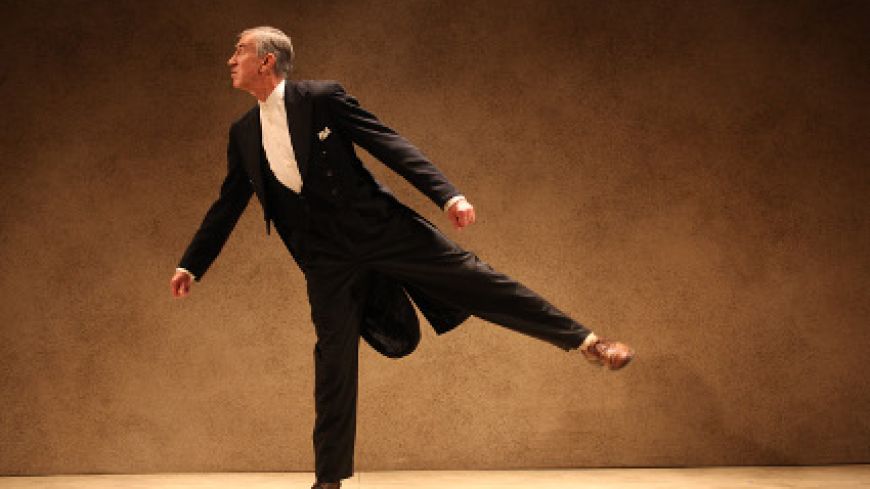
Barry McGovern, internationally renowned for his interpretations and performances of Beckett, was born and raised in a suburb of Dublin, close to Foxrock where Beckett himself grew up. Whether or not this geographical proximity is significant – one could fancy, as Beckett with Joyce that other Dubliner, that there is a shared culture that engenders an instinctive understanding of the work – somehow McGovern nails the spirit of Beckett’s oeuvre.
Watt is Beckett’s first novel, although was only published after both Murphy and the Trilogy. Written in France while in hiding during the Occupation, waiting for the war to end, Beckett was living through a time of menacing uncertainty. Something of this is captured in Watt.
As McGovern says, ‘Watt the show is not Watt the book. It is a distillation of the essence of the book.’ Like the book, this show was expertly written in four quite distinct parts. Part one describes the journey to and arrival at the house of Mr. Knott.
He describes being on the train, watching houses, trees and fields whizzing by – except, he says, they weren’t whizzing by, it just appeared as though they were whizzing by, it was actually him on the train that was whizzing by, the houses, trees and fields were quite stationary. This hints at the humour to come and marks the beginning of Watt’s questioning of his automatic assumptions, his need to rationalise, understand and make sense of the world around him.
In Part two Watt tries to make sense of the environment at Mr. Knott’s, including everyone in any way associated with it. Now these attempts become progressively convoluted, with endless lists and permutations of analysis applied to the minutiae of life, leaving him more uncertain than ever and unable to draw any conclusions.
Part three depicts a rising frustration and anxiety following his confusion over what is and what is not. Beckett reputedly wrote all his work to be voiced and this section was deliberately misleading in the spoken word given the names of the two main characters, Watt and Knott. This was articulated via a comic routine akin to Abbott and Costello’s famous ‘Who’s on first base?’. At this point, the last sentence of the novel, ‘No symbols where none intended’, resonated with an enlightened clarity.
Part four describes Watt’s return to the station, where he asks for a ticket, ‘to the end of the line’. On being asked, ‘Which end?’, he replies, ‘The further end.’ This was the end.
Without necessarily wishing to evoke the Beckettian theme of the inadequacies of language, words cannot do justice to the perfection of this performance. There is no plot, no action and, as many an eminent academic can attest, evoking Watt the man, Watt the book defies attempts to make sense of it.
Yet McGovern inhabits Beckett’s curious world to the extent that, once the instinct to categorise and rationalise is resisted, a connection, beyond words, to all that is human is profoundly made. The quantity and quality of the humour in this piece, all delivered with a deadpan and sublime comic timing, in the melodious rhythm of the Dublin dialect crystallised the pointless, unfathomable absurdities of the concerns of the peculiar animal that is man.
McGovern ingeniously transports Beckett away from the academics and intellectuals and delivers him, triumphantly, to the people.
Show times
Performance ran from 11th – 14th August

